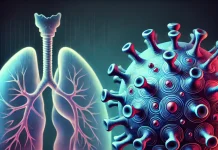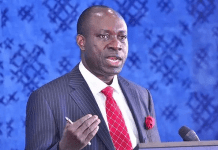Pharm. Gafar Madehin is the managing director of Epsilon Pharmacy and Stores Limited, a company he established in August, 2008. A 1987 graduate of Obafemi Awolowo University (OAU), Ile-Ife, Osun State, Madehin started practising community pharmacy in 1987, with Namu Pharmacy, in Biu, Borno State. He operated the premises in partnership with two other pharmacists, before moving back to Lagos after 15 years.
In this interview with Pharmanews, Madehin highlights the ramifications of inter-professional rivalry among healthcare workers in the country and the various challenges facing pharmacy practice. He also speaks on the contributions of community pharmacists to the war against COVID-19 and ways they could be empowered to do more. Excerpts:

What would you say are the greatest challenges facing community pharmacists in Nigeria at the moment?
The challenges are many, but the main one is inadequate regulation of the practice environment. You have a situation in which community pharmacists are targeted by regulatory agencies like the Pharmacists Council of Nigeria (PCN), the National Agency for Food and Drug Administration and Control (NAFDAC), the National Drug Law Enforcement Agency (NDLEA), and others, while charlatans are left to continue in drug distribution unhindered.
There is also lack of access to capital. Community pharmacy as a business concern requires cheap funds – with single digit interests – to operate effectively and profitably in a challenging business environment. Being the closest to the grassroots, community pharmacists have been contributing a lot in provision of primary healthcare and essential medicines to members of their communities, who see them as the first port of call when they have health challenges, either for advice or referrals.
What do you think community pharmacists should be doing to enable them to contribute more to healthcare delivery, especially at this period of COVID-19?
Community pharmacists were able to prove that they are an essential part of primary healthcare in the country, as they remain open as frontline healthcare providers to render quality health services to the community during the period of the lockdown.
But there is still room for improvement and sustainability through health promotion campaigns and extemporaneous production of hand sanitizers. Community Pharmacists also have important roles to play in the management of chronic diseases like hypertension, diabetes and others that have been identified as co-morbidities for COVID-19.
How do you see the continuous professional rivalries among healthcare practitioners in Nigeria?
The rivalries are unnecessary because they are all trained to work as a team to provide quality healthcare for the people. With increase in the complexity of knowledge and mammoth amount of information in the system, there is need for specialisation. Even in other sectors, specialisation is the new paradigm.
Every member of the healthcare team is critical to efficient and quality healthcare delivery. We have a lot to learn from each other and like a gear wheel system, we need to work harmoniously to achieve the common goal of providing quality health in the interest of the patients. Funny enough, anybody can be a victim! And the disharmony we help create through ego and selfishness may end up haunting us.
Government also has a role to play in promoting harmony. Psychologically all cooperative ventures are based on satisfaction of self-interests. In a system where resources are scarce, every group will struggle to have the lion share of the available resources, and will use economic and political power at their disposal to oppress others.
It is government that must ensure a level playing-field, in equitable distribution of wealth, and resist the manipulative tendencies of group members to take more to the detriment of others.
Finally, if health insurance is made compulsory, there would be enough engagement of every healthcare provider in carrying out their roles, without having to usurp other providers’ roles, which they are less-equipped to carry out efficiently.
A pharmacist, in person of Pharm. Sunday Ike, the former national publicity secretary of the association was gruesomely murdered at his premises. As a community pharmacist, how best do you think FG should address the issue of insecurity among healthcare workers?
The gruesome murder of Late Pharm. Sunday Ike – while he was at his duty-post, providing healthcare services to his community – was shocking and demoralising to all of us who are his colleagues.
Firstly, I applaud the Police Force for arresting some of the culprits, but they need to do more by arresting all the members of the gang that perpetrated the heinous crime of cutting down the life of our colleague. There are other reported cases, and justice must be seen to have been done. FG, in collaboration with state governments, is expected to improve on security, by encouraging community policing and providing functional security cameras in the communities.
What are your thoughts on the campaign against drug misuse and abuse, and how can community pharmacists help to tackle the menace?
The campaign against drug misuse and abuse has increased over the years, essentially because of the socio-economic impacts of drug abuse and misuse on families and the community in general.
Pharmacists, as legally recognised custodians of drugs and specially trained professionals in this field, have a central role to play. They are the source of genuine information on drugs to other stakeholders. And the public usually have the tendency to see community pharmacists as not doing enough in curbing this menace because of economic gain.
Community pharmacists should upgrade their knowledge on drug abuse prevention and control and play more active role in taking the anti-drug abuse/misuse campaign to schools, religious and other social gatherings. They can also be involved in counselling and case management of drug abuse.











